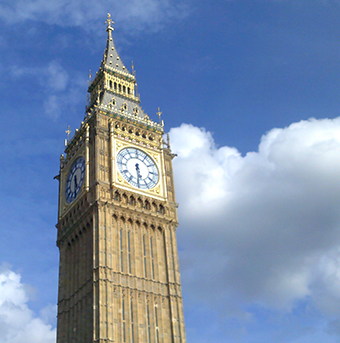Drug-related deaths in England increased by 80 per cent between 2011 and 2021, to nearly 3,000 people each year. In June 2022, 19 per cent of 16–24-year-olds reported having taken drugs, with 5pc reporting having taken Class A drugs, according to a report by the Public Accounts Committee (PAC) of MPs.
The MPs say that though the Government has made a ten-year commitment to reduce drug use, crime and deaths, requiring sustained investment and relentless focus, Government has only committed funding until 2024-25, creating uncertainty that could hinder its strategy.
The London Labour MP Meg Hillier, chair of the Committee, said: “The tragic deaths and harms caused by illegal drug use are a desperate blight on our whole society. Professor Dame Carol Black’s independent review of drugs did so much to articulate the challenges in this area. Her evidence and those of other experts to our inquiry make clear that a steely-eyed focus on investment in treatment and prevention from Government is required to improve the lives of those affected by drugs, and bring down their economic and social costs.
“As with our previous alcohol treatment services report, our committee is having to remind Government that local authorities need long-term certainty to carry out what is some of the most challenging treatment there is to provide. Some progress has been made, in particular in recruiting 1,200 new alcohol and drug workers and bearing down on county lines drugs supply. But deaths continue to rise, drug use showed no reduction in the last ten years, and the harm caused by illegal drugs is growing. The Government must now dig deep and prove that it is serious about delivering the long-term change implicit in its own strategy.”
The report noted that around three million people in England and Wales take illegal drugs each year, or around one in 11 adults; a roughly unchanging total; and quoted a 2021 Government estimate that illegal drugs cost society £20 billion a year, with drug-related crime making up nearly £10 billion of that. The MPs found that the Home Office ‘did not have an evidence base about what works in preventing individuals from taking up drug use’. MPs heard that the police ‘are increasingly seeking to divert people to treatment or a drug awareness course, instead of a prosecution for drugs possession’. The report spoke also of drug treatment services declining over the last decade, with a real-terms funding cut of 40pc across England between 2014–15 and 2021–22, meaning ‘a broken system staffed by demoralised workers, with most of the protective structures (such as youth groups) that prevented young people from taking up drugs being destroyed or reduced’. MPs also aired concerns that synthetic opioids could become more prevalent in the UK.
Comment
David Fothergill, Chairman of the Local Government Association’s Community Wellbeing Board said: “Councils are absolutely committed to ensuring vulnerable people with substance misuse problems get the right support and have a proud record of helping to transform the lives of people living with addiction.
“However, as this report recognises, these services need greater and more long term funding certainty from government if they are to deliver the life changing benefits we know they can.
“Councils report that it is proving difficult to plan to expand services due to long term financial uncertainty, significant recruitment challenges and the inability to offer longer term contracts of employment.
“Drug treatment cuts crime, improves health, and can support individuals and families on the road to recovery, reflecting a return of £4 for every £1 invested.”
Meanwhile the Association of Police and Crime Commissioners (APCC) published a ‘Deep Dive Review‘ into the experiences of PCCs and other policing partners of their local Combating Drugs Partnerships (CDPs) and similar partnerships in Wales. The association spoke of PCC concern about increasing drug use among young people – mainly of illegal ‘gateway’ drugs like cannabis and ketamine – and a shortage of treatment and support for them.
APCC Addictions and Substance Misuse Leads, Durham PCC Joy Allen and Dorset PCC David Sidwick said: “The Government’s Advisory Council on the Misuse of Drugs is developing advice for ministers on how we deliver a whole system response to drug use and harm amongst 11–24-year-olds, which is due next month. This needs to provide a basis for a focussed and sustained drive to tackle young people’s misuse of drugs with the same energy that has quite rightly been devoted to opiates and crack cocaine – otherwise, alongside the harms being experienced today, we will have the same problems in the future.
“That’s why we’ve strongly supported the expansion of drug testing on arrest to Class B and C drugs under the Criminal Justice Bill and are currently expressing our concerns to Minister’s about plans to cut Home Office funding for testing. Our own research has found that one of the key roles that PCCs are playing locally is to ensure that the enforcement and prevention strands of the drug strategy are a focus alongside of treatment and recovery – this is critical for the long-term success of the Drug Strategy.”
For the APCC review visit the APCC website.










